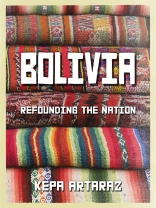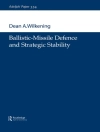The election of the Movimiento al Socialismo (MAS) to power in Bolivia in 2006 marked a historic break from centuries of foreign domination and indigenous marginalisation. Evo Morales, leader of the MAS, became the first indigenous president of Bolivia.
Kepa Artaraz looks at the Morales’ government’s attempt to ‘refound the nation’. He shows how the mix of Marxism, indigenous liberation politics, anti-imperialism and environmentalism has made Bolivia one of the most interesting and unique political experiments of Latin America’s ‘red decade’.
As the historic left-turn in Latin America reaches a crossroads, this book guides us through the politics and ideas which have animated this popular movement, drawing out important lessons for progressive politics everywhere.
Tabella dei contenuti
Acknowledgements
1. The Economic Birth Pains of Poor Countries
2. Political Failures and Political Revival
3. Revolution in Democracy?
4. New Politics: In Search of a Working Relationship Between the State and Civil Society
5. New Citizens, Welfare and Wellbeing
6. New Economics: The Promise and the Limits of Post-Neoliberal Development
7. Bolivian-US Relations: Breaking the Stranglehold
8. Bolivia’s Place in Latin America
9. The Promise and the Limits of a Revolution in Democracy
Conclusion
Notes
Index
Circa l’autore
Kepa Artaraz is a lecturer at the University of Brighton where he teaches global social policy and politics. He is the author of Cuba and Western Intellectuals since 1959 (2009).












